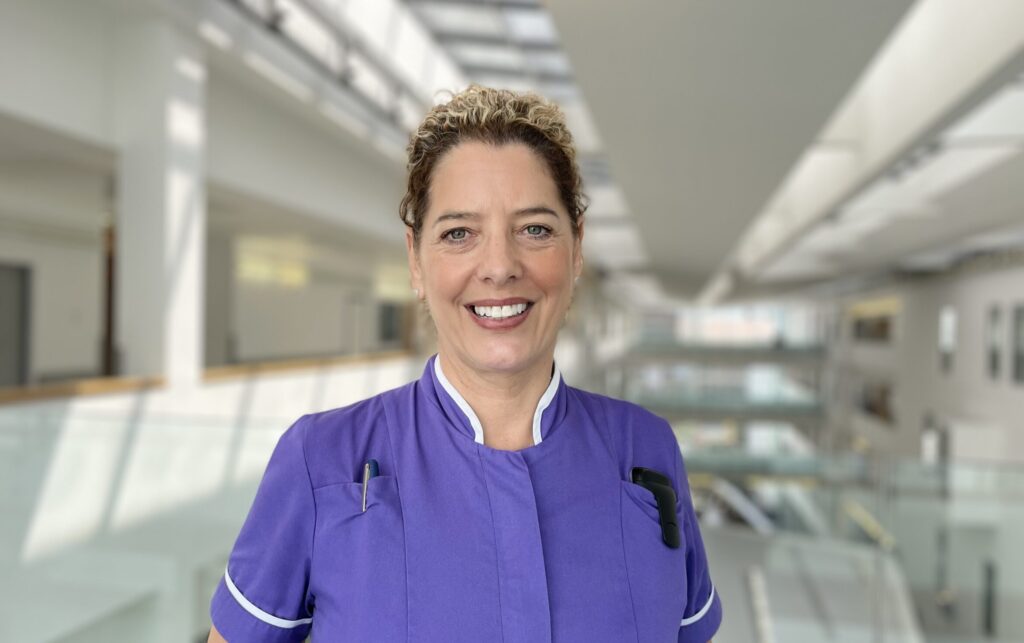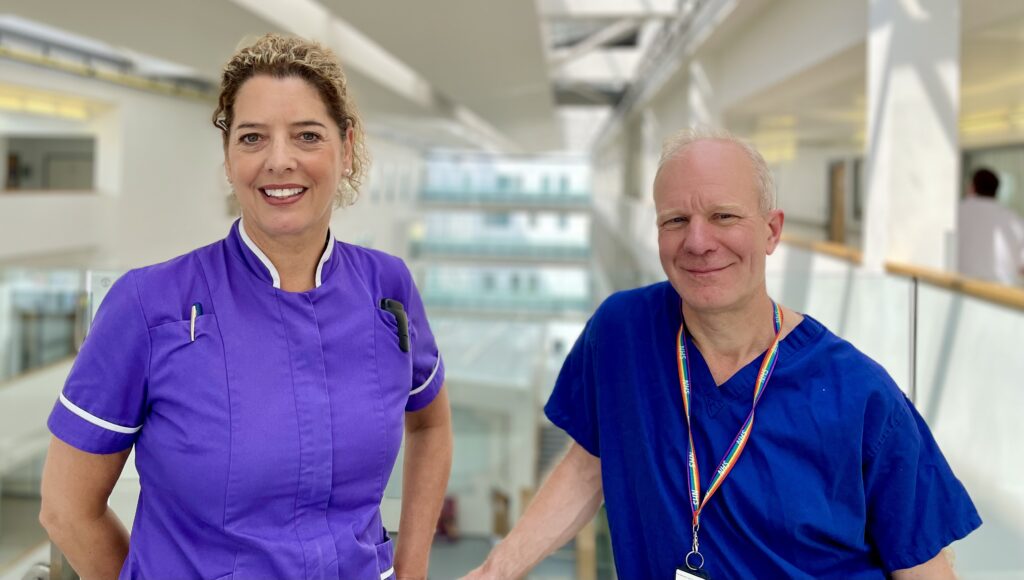
Heather’s clinical work within the Chronic Pain team focusses mainly on neuromodulation, and she has a strong research interest in this area. She says, “how we manage pain as a service has massively changed from when I first started, and the majority of what we do now is around technology and pain”.
With more referrals for neuromodulation treatment, she describes how the service has moved away from more traditional treatments such as TENS therapy, and acupuncture.
“Technology has advanced the treatment for chronic pain. Neuromodulation and spinal cord stimulation are dynamic solutions to help improve the problem. However, we also need the multidisciplinary team to support chronic pain patients to get the best out of any therapy”.
The advancing nature of these treatments has meant that research in this area is ripe with opportunity. With much still to explore, Heather has been instrumental in the creation of several successful poster presentations in the last few years highlighting the important work of the Newcastle neuromodulation team.
These have included:
- A study looking into pain following mastectomy using spinal cord stimulation which was presented at the 26th North American Neuromodulation Society (NANS) Annual Meeting in January 2023
- A randomised controlled crossover study examining the analgesic efficacy of “burst” and tonic spinal cord stimulation patterns, presented at the European Pain Federation Conference in 2020
- A case series of six patients successfully converted from traditional spinal cord stimulation to high-frequency spinal cord stimulation due to loss of efficacy
Heather’s Clinical Journey
She began her career as a theatre nurse, progressing to be a junior sister with theatres and it was here that she developed an interest in pre- and post-surgical pain. Alongside colleague at the time, consultant anaesthetist Dr Warnell, she developed assessments for pre- and post-surgical pain to find out more about her patient’s experience within theatres.
Following the success of this, a job was created within the department and Heather successfully applied. This specialist role allowed her the opportunity to help set up an acute pain service across both sites (RVI and CAV) alongside Sister Irene Welsh and the rest of her team.
Knowing that pain management was her interest, she decided to challenge herself by applying for a position within the Chronic Pain team, which was, at the time, advertising their very first nursing position. Following her success at interview, she has been working in this team ever since.
Research
Heather’s research interest started early on in her clinical career. She saw the value in conducting audits as a junior member of staff and describes enjoying seeing the change happening because of her work, saying
this gave me a flavour of how new information can change practice to improve patient care and outcomes
Whilst not all her colleagues had the same research interests, she felt strongly as to the value of this work, explaining “It doesn’t matter what people say, as long as you put the patient first”. And although it was difficult to get all staff engaged, she was able to identify those who were keen to learn and improve patient care.
Approaching these members of staff first, “it snowballed from there”, and she started to build her confidence and network with external colleagues at conferences.
She credits former R&D Director Stephen Wright as being influential in this period. He was research lead within the directorate and was very encouraging, supporting Heather to apply for 4 hours a week of funding to undertake research activities.
She says, “it just takes someone to believe in you, it doesn’t matter if it’s 2 hours or 4 days as long as you have some time”.
Heather also acknowledges that none of this would be possible without the ongoing support of her nursing colleagues in chronic pain management, the neurosurgeons, and the directorate research team.

She is fortunate now to work alongside colleagues who are also active in research. Citing Annette Richardson, Claire Randall, and those who contribute to the Nurse Consultant Peer Support and Clinical Supervision Group, as well as the nurses and neurosurgeons she works with, including John Crossman (pictured), she says, “I find a lot of inspiration within this group of people”.
Her advice to other colleagues interested in pursing research within their clinical area, is to use the resources available within the Trust and don’t be shy to ask for help. As well as nurse consultants, the NMAHP Research team can also advise and support.
Contact us
Email [email protected]